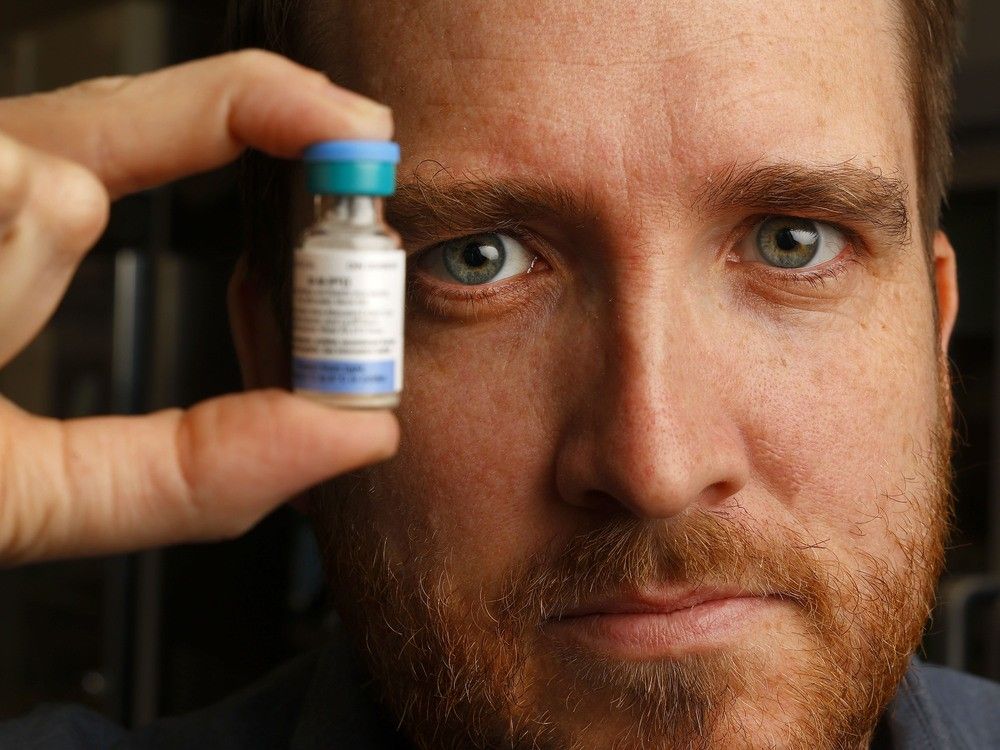Mike Bialek doesn’t have many options when it comes to protecting himself from measles.
“I don’t even know what I could do, if anything, at this point,” said Bialek, an Ottawa resident who is immunocompromised. “There’s a lot of anxiety induced.”
As
measles re-emerges in Ottawa
for the first time since 2019, immunocompromised people, who can include those undergoing cancer treatments, living with autoimmune diseases or taking immunosuppressive medications, face much higher risks of severe illness from the virus.
Once the recent news about measles broke, Ottawans, particularly those who are immunocompromised, took to social media to express their concerns about its reemergence.
“It’s a big concern because I have to rely on herd immunity at this point,” Bialek said.
According to the Mayo Clinic, herd immunity refers to the point at which a disease struggles to spread because enough people are protected against it. That is achieved when 95 per cent of the community is immunized, according to Ian Culbert, executive director of the Canadian Public Health Association.
Trevor Arnason, interim medical officer of health at Ottawa Public Health, says the measles virus can spread quickly in unvaccinated communities.
“When you have groups of people who are together, let’s say at a specific school or a specific church or community centre where people are gathering and a lot of them are not vaccinated against measles, it only takes one case of measles introduced into that area to spread it to almost everyone who’s unvaccinated,” he said.
Bialek is unsure what further steps he can take beyond wearing a mask, and he wants clearer messaging from local and provincial authorities.
“It would be nice to see a little bit more guidance in terms of what individuals can do, should they choose to take some initiative on themselves to try to protect themselves,” he said.
“There was plenty of messaging like that with COVID … We’re definitely not in COVID numbers yet with measles — God forbid if we ever get there — but it would be nice to see some kind of information like that from the city.”
Arnason says the
risk to the public is currently “very low,”
but he acknowledges that those who are immunocompromised remain vulnerable because there is not much an individual can do to prevent contracting measles once exposed to it.
“Individual level behaviors are challenging, you know, for the individual who’s immunocompromised or parents of immunocompromised children,” he said. “So, really, what it’s about is about the people around them getting vaccinated. That’s the most important thing.”
Measles can have serious health impacts for those without immunity, including impaired hearing, impaired vision, and brain damage, Culbert says.
“You really want to take every precaution,” he said. “Avoiding situations where you’re going to be around a lot of children is probably a good idea as well.”
Culbert says the City of Ottawa needs “really clear messaging around
how serious and preventable measles is
,” adding now is the time for proactive outreach, before case numbers grow.
While anti-vaccine sentiment draws headlines, Culbert says those against immunization are “actually a fairly small percentage of the overall population and probably not the cause of the flare-up.”
Instead, he points to accessibility issues as a key factor,
“A very large number of family physicians retired or gave up their practices during COVID,” he said, “and unfortunately in Ontario … we don’t have public-facing vaccine registries, so it is up to individuals or parents to keep track.”
Bialek believes stronger provincial enforcement could help.
“It would be nice to see from the province, like, for example, enforcement at schools, if vaccination records are up to date, to help urge parents to ensure that their kids are vaccinated, right?”
Arnason says some vaccinations impact individuals on a personal level, but the same cannot be said for the measles vaccine.
“Measles is very much one where the
vaccination impacts those around us
, impacts the community because it really reduces the spread,” he said.
Bialek is frustrated by anti-vaccine sentiment, especially for children who cannot make medical decisions for themselves.
“(Children) are reliant on the province to enforce regulations, and so it’s upsetting to me to see so many children affected … with an illness that is easily preventable,” he said.
Our website is your destination for up-to-the-minute news, so make sure to bookmark our homepage and sign up for our newsletters so we can keep you informed.
Related
- More than flowers: This year’s Tulip Festival will shower Ottawa with photo ops, fireworks and free movie screenings
- Could ‘mission government’ solve Ottawa’s delivery problems?



